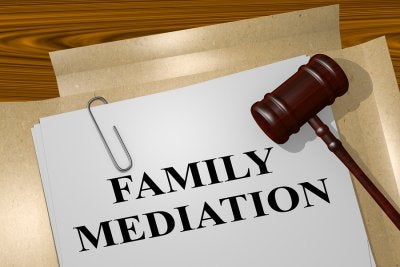-
What Is Probate?
Legal matters are often complex and confusing in the wake of a loved one’s death. It’s highly recommended that you consult an estate lawyer in Baltimore to guide you through the probate process. Probate is the process by which a will is legally recognized, an executor or personal representative is appointed, and the assets are distributed. In some cases, probate can be completed relatively easily and quickly. In other cases, such as when a will is contested, the matter can drag on for months.
After a person dies, a probate lawyer will ask that the court legally recognize the will and appoint the executor that the decedent named. If the person died without a will, then the judge can appoint someone. The executor is responsible for taking an inventory of the decedent’s assets and debts, and for identifying the beneficiaries. The executor will need to settle the decedent’s outstanding debts before distributing the remaining assets to the beneficiaries in the manner specified in the will.

-
A Step-by-Step Guide to the Adoption Process in Maryland
Making the decision to adopt a child is a joyous occasion, but the process itself can often be tedious and confusing. If you intend to adopt a child, you can make an appointment with a lawyer in Baltimore who handles adoption cases. Your lawyer can walk you through the stages of the adoption process and provide legal representation if any problems arise.

Requirements
The requirements to adopt a child in Maryland are not unnecessarily strict. However, an adoptive parent must be at least 21 years of age. Adoptive parents may be single or married. If married, then both adoptive parents will be joined to the petition unless the couple is separated or the other parent is not legally competent. It is not necessary for adoptive parents to be affluent; however, they must have the financial means to provide for the child. Adoptive parents may be renters or homeowners. It is required to complete a 27-hour home study course before adopting a child through a public agency.
Consent
Under Maryland family law, the legal guardians of the adoptee must provide consent for the adoption. The legal guardians may be the birth parents or the adoption agency. If the court has terminated parental rights, then only agency consent is required. If the adoption is an independent adoption, the adoptive parents must obtain the consent of all legal guardians. However, the consent of only one parent may be needed if the other parent cannot be located, does not object to a published notice of adoption, and has not been in contact with the department for a certain length of time.
Petition
A lawyer will file a petition for adoption with the court, which will likely include supporting documents. Once the petition is filed, the court will send a notice to all of the involved parties and their attorneys.
Hearing
During the hearing, the judge will decide whether to grant or deny the petition for adoption. If it is an independent adoption, the court might require an investigation prior to granting the petition. If the matter is being facilitated by a private adoption agency, then the agency will need to submit a report prior to the hearing. During the hearing, the judge will consider whether the petitioners are fit to be adoptive parents, whether all necessary paperwork has been completed, and whether being adopted is in the best interests of the adoptee.
-
Finding Your Birth Parents
Individuals who were adopted often have many questions about their birth parents . It isn’t always possible to uncover the identities of the birth parents, especially if it was a closed adoption. However, the first step is to consult a lawyer in Baltimore. A lawyer can guide you through the process of filing consent for contact and a waiver of confidentiality with the Department of Social Services. If your birth parents have also filed this paperwork, then the identities can be disclosed. In many cases, however, mutual consent is not given.
Watch this video to find out what you can do if the adoption was closed and mutual consent is not given. This professional explains that you can have a lawyer petition the court to open the records. In the petition, you must provide compelling reasons why the court should open the records. For example, you may need information about your birth parents for medical reasons.
-
Preparing for Post-Divorce Mediation to Modify Child Support or Custody
It’s often expected that a divorce agreement will resolve family law issues beyond a shadow of a doubt. But in fact, many disputes can arise months or years after the divorce agreement was signed. For example, one party may wish to change the custody agreement or child support arrangement. If this applies to your situation, you can consult a mediation lawyer in Baltimore . He or she may recommend post-divorce mediation. Being well prepared for your mediation sessions can help you get the most out of them.

Gather Documents
Ahead of your first mediation session, you should gather together documents that are relevant to the case. Your lawyer can provide guidance on which specific documents or evidence will be useful for achieving your goals. For example, if you wish to increase the child support payments you’re receiving, you may need evidence that demonstrates that the child’s financial needs are increasing. These might include medical bills or receipts for extracurricular activities. Perhaps you wish to modify the visitation schedule. For example, you might argue that your child’s grades are declining because of the back-and-forth visitation during the week days. Gather together your child’s report card, progress reports, notes from teachers, and similar evidence.
Prepare Proposals
You likely already have a clear idea of what you would like to accomplish in post-divorce mediation. But it can be even more helpful to put your proposal into writing. For example, you might develop one or more alternative schedules of visitation. If you want your child with you during the entire week, you’ll need to be prepared to increase visitation during other times such as school vacations, holidays, and weekends. Understand that it’s unlikely that your proposal will be accepted exactly as is. However, it can provide a good starting point for the discussion.
Adjust Your Mindset
Before going into mediation, your lawyer may counsel you to adjust your mindset. Mediation is intended to resolve conflicts in a mutually agreeable way . It’s expected that parties involved with mediation may not be on the best of terms, but entering mediation with a confrontational mindset is counterproductive. Remind yourself that you’ll have to be willing to compromise to make progress. You might even identify areas where you’re willing to compromise before your session with the mediator.

